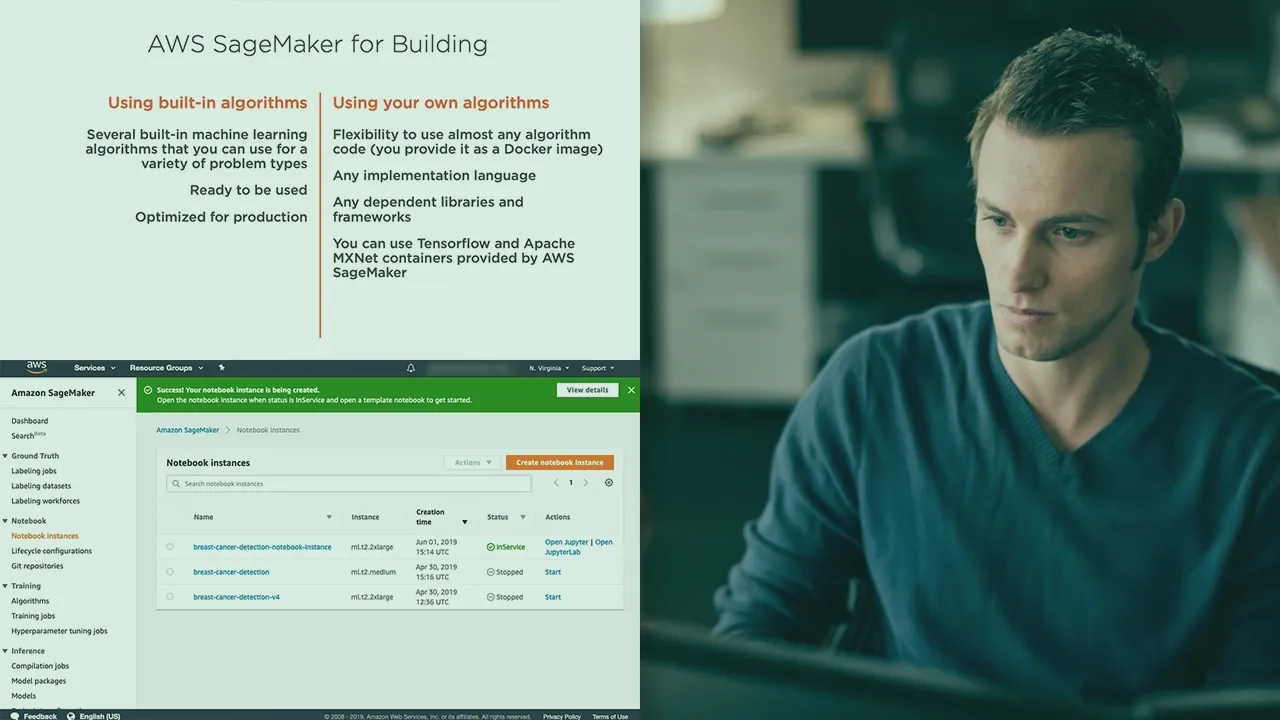
Reinforced Concrete Road Bridges 
This course provides an introduction to the design and construction of reinforced concrete road bridges. It covers topics such as design considerations, loads, IRC codes, flexural and shear strength of reinforced concrete members, and solid slab and T-beam bridge design. Through online learning and skill training, students will gain an understanding of the fundamentals of reinforced concrete road bridges and how to apply them in practice. ▼
ADVERTISEMENT
Course Feature
![]() Cost:
Cost:
Free
![]() Provider:
Provider:
Swayam
![]() Certificate:
Certificate:
No Information
![]() Language:
Language:
English
![]() Start Date:
Start Date:
Self Paced
Course Overview
❗The content presented here is sourced directly from Swayam platform. For comprehensive course details, including enrollment information, simply click on the 'Go to class' link on our website.
Updated in [May 25th, 2023]
Reinforced Concrete Road Bridges is a course designed to provide learners with an understanding of the design considerations, loads, and IRC codes related to reinforced concrete road bridges. Learners will gain an understanding of the flexural and shear strength of reinforced concrete members, as well as the design of solid slab and T-beam bridges. This course will provide learners with the knowledge and skills necessary to design and construct reinforced concrete road bridges that are safe and efficient.
In this course, learners will gain an understanding of the design considerations for reinforced concrete road bridges, including the loads and IRC codes that must be taken into account. They will learn about the flexural and shear strength of reinforced concrete members, and how to design solid slab and T-beam bridges. Additionally, learners will gain an understanding of the construction process for reinforced concrete road bridges, including the materials and techniques used. Finally, learners will be able to apply their knowledge to design and construct reinforced concrete road bridges that are safe and efficient.
[Applications]
After completing this course, students should be able to apply the concepts learned to design reinforced concrete road bridges. They should be able to understand the design considerations, loads, and IRC codes, as well as the flexural and shear strength of reinforced concrete members. Additionally, they should be able to design solid slab bridges and T-beam bridges.
[Career Paths]
1. Bridge Engineer: Bridge Engineers are responsible for the design, construction, and maintenance of bridges and other structures. They must be knowledgeable in structural engineering principles, materials, and construction methods. They must also be able to work with other professionals, such as architects, civil engineers, and surveyors, to ensure that the bridge is built to the highest standards. With the increasing demand for infrastructure projects, the demand for bridge engineers is expected to grow.
2. Structural Engineer: Structural Engineers are responsible for the design, analysis, and construction of structures such as buildings, bridges, and other large structures. They must be knowledgeable in structural engineering principles, materials, and construction methods. They must also be able to work with other professionals, such as architects, civil engineers, and surveyors, to ensure that the structure is built to the highest standards. With the increasing demand for infrastructure projects, the demand for structural engineers is expected to grow.
3. Construction Manager: Construction Managers are responsible for the planning, coordination, and execution of construction projects. They must be knowledgeable in construction methods, materials, and safety regulations. They must also be able to work with other professionals, such as architects, civil engineers, and surveyors, to ensure that the project is completed on time and within budget. With the increasing demand for infrastructure projects, the demand for construction managers is expected to grow.
4. Project Manager: Project Managers are responsible for the planning, coordination, and execution of projects. They must be knowledgeable in project management principles, materials, and construction methods. They must also be able to work with other professionals, such as architects, civil engineers, and surveyors, to ensure that the project is completed on time and within budget. With the increasing demand for infrastructure projects, the demand for project managers is expected to grow.
[Education Paths]
1. Civil Engineering: Civil engineering is a field of engineering that deals with the design, construction, and maintenance of public works such as roads, bridges, dams, and buildings. Civil engineers use their knowledge of mathematics, physics, and materials science to develop solutions to complex problems. With the increasing demand for infrastructure development, civil engineering is a field that is growing in importance.
2. Structural Engineering: Structural engineering is a field of engineering that focuses on the design and analysis of structures such as buildings, bridges, and other large structures. Structural engineers use their knowledge of mathematics, physics, and materials science to develop solutions to complex problems. With the increasing demand for infrastructure development, structural engineering is a field that is growing in importance.
3. Construction Management: Construction management is a field of engineering that focuses on the planning, coordination, and control of construction projects. Construction managers use their knowledge of mathematics, physics, and materials science to develop solutions to complex problems. With the increasing demand for infrastructure development, construction management is a field that is growing in importance.
4. Transportation Engineering: Transportation engineering is a field of engineering that focuses on the planning, design, and operation of transportation systems. Transportation engineers use their knowledge of mathematics, physics, and materials science to develop solutions to complex problems. With the increasing demand for infrastructure development, transportation engineering is a field that is growing in importance.
Course Provider

Provider Swayam's Stats at AZClass
Discussion and Reviews
0.0 (Based on 0 reviews)
Explore Similar Online Courses

The Mental Health Management And Control Formula: 20

Build Train and Deploy Machine Learning Models with Amazon SageMaker

Python for Informatics: Exploring Information

Social Network Analysis

Introduction to Systematic Review and Meta-Analysis

The Analytics Edge

DCO042 - Python For Informatics

Causal Diagrams: Draw Your Assumptions Before Your Conclusions

Whole genome sequencing of bacterial genomes - tools and applications

Basics of Civil Engineering Mechanics - Beginner Course

Roof Runoff Structure Design (NRCS Standard 558)

Site Engineer
 Related Categories
Related Categories
 Popular Providers
Popular Providers
Quiz
 Submitted Sucessfully
Submitted Sucessfully
1. What is the main purpose of reinforced concrete road bridges?
2. What are the design considerations for reinforced concrete road bridges?
3. What are the two main types of reinforced concrete road bridges?
4. What is the main purpose of IRC codes?
Correct Answer: To provide design standards for reinforced concrete road bridges.


Start your review of Reinforced Concrete Road Bridges